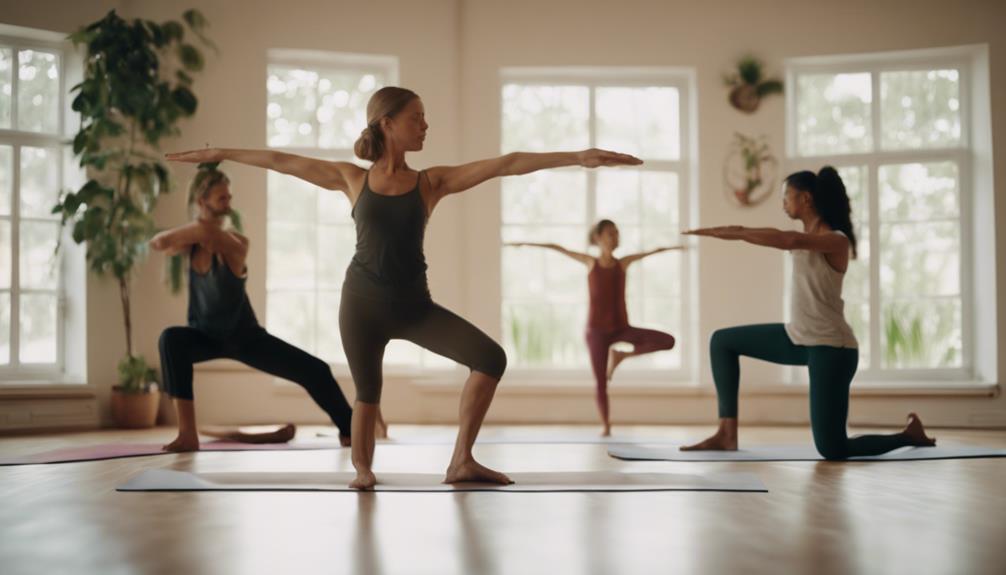What is Yin Yoga Good For?
Yin yoga is a gentle yet profound practice that invites deeper exploration of the body and mind. Rooted in ancient Chinese philosophy, this style of yoga emphasizes stillness and long-held postures to target the connective tissues, such as ligaments, tendons, and fascia. But what is yin yoga good for? It serves as a counterbalance to our fast-paced lives, providing a space to cultivate mindfulness, flexibility, and emotional harmony. As we delve into the enchanting world of yin yoga, we’ll uncover the myriad of benefits it has to offer, transforming your practice into a holistic journey toward wellness.
The beauty of yin yoga lies in its simplicity. Unlike more dynamic styles, yin yoga encourages practitioners to hold poses for an extended period—typically between three to five minutes—allowing for deep stretching and relaxation. This approach not only enhances physical flexibility but also promotes mental clarity and emotional stability. As you surrender into each pose, you may find yourself gaining insight into your inner landscape, making yin yoga an effective tool for both physical and emotional healing.
As you consider the wonders of yin yoga, it’s essential to recognize its adaptability. Suitable for all levels, from beginners to seasoned yogis, it provides a unique opportunity for everyone to explore what it is good for. Whether you’re looking to deepen your meditation practice, improve your physical flexibility, or simply unwind from daily stressors, yin yoga offers an inclusive space for growth and healing. So, let’s dive into the benefits and discover how this tranquil practice can enhance your overall well-being!
Unlocking Bliss: The Benefits of Yin Yoga Revealed!
Yin yoga is especially beneficial for those seeking to improve their flexibility. The long-held postures allow the muscles to relax and the connective tissues to stretch deeply. As you hold a pose, the body gradually releases tension, leading to increased range of motion over time. This is particularly advantageous for athletes or individuals engaged in physical activity, as enhanced flexibility can prevent injuries and improve overall performance. In essence, what is yin yoga good for? It’s a gateway to unlocking physical freedom and resilience!
Beyond the physical aspects, the emotional and mental benefits of yin yoga are equally profound. By embracing stillness and cultivating a meditative mindset, practitioners often experience reduced levels of stress and anxiety. Yin yoga encourages deep breathing and mindfulness, which can enhance emotional clarity and promote a sense of tranquility. As you navigate the complexities of life, the insights gained during your practice can empower you to face challenges with grace and equanimity. Ultimately, yin yoga serves as a nurturing balm for the mind and spirit, fostering emotional well-being alongside physical strength.
Moreover, yin yoga provides a unique opportunity for introspection and self-discovery. As you settle into each posture, you’re invited to turn your attention inward, exploring your thoughts, feelings, and sensations. This reflective practice can lead to greater self-awareness and acceptance, making it a valuable tool for personal growth. By connecting with your inner self, you can better understand your needs, desires, and limitations. In this way, yin yoga not only enhances physical health but nurtures emotional and spiritual wellness, creating a holistic approach to a balanced life.
In conclusion, the question of what is yin yoga good for opens up a world of possibilities. From increased flexibility and enhanced emotional stability to profound self-discovery, the benefits of this serene practice are invaluable. Whether you’re seeking a gentle way to unwind after a hectic day or looking to deepen your connection with yourself, yin yoga offers a beautiful pathway toward holistic wellness. So why not roll out your mat, embrace the stillness, and embark on your own journey of discovery through the magical practice of yin yoga? Your body, mind, and spirit will thank you!
